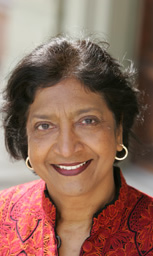

 GENEVA (21 September 2010) - The UN Committee of Independent Experts monitoring and assessing investigations into serious violations of International Humanitarian and Human Rights Laws during the Gaza conflict (December 2008 to January 2009) issued Tuesday its report* on the efforts undertaken by the state of Israel and the Palestinian side.
GENEVA (21 September 2010) - The UN Committee of Independent Experts monitoring and assessing investigations into serious violations of International Humanitarian and Human Rights Laws during the Gaza conflict (December 2008 to January 2009) issued Tuesday its report* on the efforts undertaken by the state of Israel and the Palestinian side.
"The parties responded, albeit in a different manner, to the call of the General Assembly and the Human Rights Council to meet their obligations to investigate allegations of crimes detailed in the Fact-Finding Mission report," said the Committee's chair, Christian Tomuschat. "The investigations, however, remain incomplete in some cases or fall significantly short of meeting international standards in others."
The independent body was established by the Human Rights Council earlier this year to "monitor and assess any domestic, legal or other proceedings undertaken by the Government of Israel and the Palestinian side" in light of the allegations raised last year in the report of the UN Independent Fact-Finding Mission into the Gaza Conflict - known as the Goldstone Report.
The Fact-Finding Mission Report, published in September 2009, alleged that both Israel and the Palestinian side committed war crimes, human rights violations and possibly crimes against humanity during the conflict in Gaza.
The Committee sought cooperation from Israel and the Palestinian authorities. Regrettably, it received no response to its numerous requests for cooperation and access to Israel and the West Bank from the Israeli authorities. In contrast, the Committee noted it had received cooperation and assistance from the Palestinian side.
Israeli side
"A lack of cooperation from Israel has hampered the Committee?s assessment of investigations into serious violations of war crimes," Mr. Tomuschat said. "Israel has published a lot of information on their investigations, but its refusal to cooperate with the Committee made it impossible to assess whether inquiries met international standards" of independence, impartiality, thoroughness and effectiveness, genuineness, promptness, and transparency.
Despite this lack of cooperation, the independent experts were able to draw some conclusions based on official submissions and numerous interviews with military experts and Palestinian witnesses with knowledge of Israeli investigations. "Israel conducted investigations into many incidents, but only four resulted in criminal indictments, one of which led to a conviction for a credit card theft," Mr. Tomuschat noted.
The Committee found that these inquiries did not cover all allegations made by the Fact-Finding Mission. It found that Israel had not undertaken investigations into high-level decision-makers. Israel had also failed to investigate claims of human rights violations in the West Bank alleged to have occurred at the time of the conflict.
There were also concerns about whether the inquiries met standards of impartiality. Specifically, the Committee concludes that the dual role of the Military Advocate General (MAG) to provide legal advice to IDF with respect to the planning and execution of "Operation Cast Lead" and to conduct all prosecutions of alleged misconduct by IDF soldiers during the operations in Gaza raises a conflict of interest, given the Fact-Finding Mission's allegation that those who designed, planned, ordered and oversaw the operation were complicit in IHL and IHRL violations.
Palestinian side
The Committee also monitored and assessed investigations conducted by the Palestinian side. The Palestinian Authority established an independent Commission of investigation that alleged human rights violations were committed by public officials in the West Bank.
Having met with members of the independent Commission, the Committee concluded that those investigations conformed with international standards. However, the Commission was unable to investigate fully allegations of serious violations of war crimes occurring in Gaza due to difficulties the Commission faced in accessing the Gaza Strip.
The UN independent committee of experts was however able to assess the work of two Committees of Inquiry established by the de facto Gaza authorities and met with members of those Committees. The first, made up of officials of the de facto Gaza authorities, made no serious effort to address the allegations raised by the Fact-Finding Mission. The second body provided information on measures taken to redress violations in the Gaza Strip, but failed to substantiate assertions that political prisoners had been released and criminal prosecutions had taken place.
The UN Committee of Independent Experts will present its report to the UN Human Rights Council on 27 September 2010.
A press conference will be held at 16:30 on Monday 27 September, in Room III, Palais des Nations, Geneva.
(*): Check the Committee's report: http://www2.ohchr.org/english/bodies/hrcouncil/docs/15session/A.HRC.15.50_AEV.pdf
The Committee's members:
Professor Christian Tomuschat is Professor Emeritus at Humboldt University Berlin. Prior to taking the chair of international law in Berlin, he worked for 22 years at the Law Faculty of the University of Bonn as the director of the Institute of international law. A renowned international jurist and an expert on international human rights and international humanitarian law, Professor Tomuschat has also served as a member of the UN Human Rights Committee, president of the International Law Commission, Chairperson of the Guatemalan Historical Clarification Commission, member of the International Commission of Jurists, and judge of the Inter-American Development Bank and the African Development Bank. He is the author of numerous books and articles on human rights and humanitarian law.
Judge Mary McGowan Davis served as a Justice of the Supreme Court of the State of New York and as a federal prosecutor during the course of a 24-year career in the criminal justice sector in New York City. She also has extensive experience in the fields of international human rights law and transitional justice. Justice Davis has been involved in mentoring and training of lawyers and judges in Afghanistan, Iraq, Mongolia, and Rwanda. She visited Cambodia and Sierra Leone on missions relating to the establishment of war crimes tribunals in those countries. She has also served as a consultant to the International Criminal Tribunal for Rwanda and the International Criminal Court. She is a member of the Board of Directors of the American Association for the International Commission of Jurists and the International Judicial Academy, and serves on the Managerial Board of the International Association of Women Judges.
Mr. Param Cumaraswamy, a renowned jurist and human rights expert, served from 1994 to 2003 as the Special Rapporteur of the UN Commission on Human Rights on the independence of judges and lawyers. He is a Barrister at Law from the United Kingdom and practices law in Malaysia, and is a former President of the Bar Association of Malaysia. He is an active member of several organizations including the Law Association of Asia and the Pacific, the International Commission of Jurists and the Advisory Council of the American Bar Association Centre of Human Rights. Mr Cumaraswamy is the author of numerous articles on human rights, humanitarian law, the rule of law and judicial independence. are: Professor Christian Tomuschat (Chair), Justice Mary McGowan Davis and Mr. Param Cumaraswamy.
Report of the United Nations Fact-Finding Mission on the Gaza Conflict: http://www2.ohchr.org/english/bodies/hrcouncil/docs/12session/A-HRC-12-48.pdf
Conclusions and recommendations ? Report of the UN Fact Finding Mission on the Gaza Conflict:
http://www2.ohchr.org/english/bodies/hrcouncil/docs/12session/A-HRC-12-48_ADVANCE2.pdf
Navanethem Pillay
 The appointment of Navanethem Pillay as UN High Commissioner for Human Rights was approved by the General Assembly on 28 July 2008. She took up the post on 1 September 2008.
The appointment of Navanethem Pillay as UN High Commissioner for Human Rights was approved by the General Assembly on 28 July 2008. She took up the post on 1 September 2008.
Ms. Pillay, a South African national, was the first woman to start a law practice in her home province of Natal in 1967. Over the next few years, she acted as a defense attorney for anti-apartheid activists, exposing torture, and helping establish key rights for prisoners on Robben Island.
She also worked as a lecturer at the University of KwaZulu-Natal, and later was appointed Vice-President of the Council of the University of Durban Westville. In 1995, after the end of apartheid, Ms. Pillay was appointed a judge on the South African High Court, and in the same year was chosen to be a judge on the International Criminal Tribunal for Rwanda, where she served a total of eight years, the last four (1999-2003) as President. She played a critical role in the ICTR's groundbreaking jurisprudence on rape as genocide, as well as on issues of freedom of speech and hate propaganda. In 2003, she was appointed as a judge on the International Criminal Court in the Hague, where she remained until August 2008.
In South Africa, as a member of the Women's National Coalition, she contributed to the inclusion of an equality clause in the country?s Constitution that prohibits discrimination on grounds of race, religion and sexual orientation. She co-founded Equality Now, an international women's rights organization, and has been involved with other organizations working on issues relating to children, detainees, victims of torture and of domestic violence, and a range of economic, social and cultural rights.
Ms. Pillay received a BA and a LLB from Natal University South Africa. She also holds a Master of Law and a Doctorate of Juridical Science from Harvard University. She was born in 1941, and has two daughters.
Human Rights Committee
Monitoring civil and political rightsThe Human Rights Committee is the body of independent experts that monitors implementation of the International Covenant on Civil and Political Rights by its State parties. All States parties are obliged to submit regular reports to the Committee on how the rights are being implemented. States must report initially one year after acceding to the Covenant and then whenever the Committee requests (usually every four years). The Committee examines each report and addresses its concerns and recommendations to the State party in the form of "concluding observations?. In addition to the reporting procedure, article 41 of the Covenant provides for the Committee to consider inter-state complaints. Furthermore, the First Optional Protocol to the Covenant gives the Committee competence to examine individual complaints with regard to alleged violations of the Covenant by States parties to the Protocol.
The full competence of the Committee extends to the Second Optional Protocol to the Covenant on the abolition of the death penalty with regard to States who have accepted the Protocol. The Committee meets in Geneva or New York and normally holds three sessions per year. The Committee also publishes its interpretation of the content of human rights provisions, known as general comments on thematic issues or its methods of work. For more information about the work of the Human Rights Committee, click here. |
Members
| Name | State | Term |
| 2006-2010 | ||
| 2008-2012 | ||
| 2006-2010 | ||
| 2006-2010 | ||
| 2008-2012 | ||
| 2006-2010 | ||
| 2008-2010 | ||
| 2008-2012 | ||
| 2008-2012 | ||
| 2006-2010 | ||
| 2006-2010 | ||
| 2008-2012 | ||
| 2006-2010 | ||
| 2008-2012 | ||
| 2006-2010 | ||
| 2008-2012 | ||
| 2008-2012 | ||
| 2006-2010 |





 ..Israeli Shekel Exchange
..Israeli Shekel Exchange
No comments:
Post a Comment